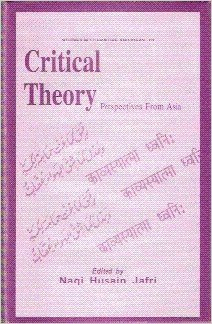With the rising popularity of Comparative Literature as a subject of formal study, comparative critical theory has assumed fresh importance as a complementary discipline, and received greater scholarly attention, including curricular provision. But, the discipline suffers from the paucity of adequate primary materials—the literary principles of target literatures essential for the appreciation and evaluation of their individual genius and interrelated aesthetic bearings. Naqi Husain Jafri has volunteered to abridge this deficiency with reference to five Asian languages—four classical and one modern. Tackling the five-fold problem was no easy task, but he has accomplished it with credit despite the scarcity of adequate English texts. He has collected three key-texts and a dozen essays, expanding and commenting on the critical concepts and principles of the respective languages. Like Edward Said, Jafri blames the neglect and obscurity of their native literary codes by the easterners themselves on the skewed perceptions of the colonial orientalists, and pleads for a correction of the imbalance.
January 2005, volume 29, No 1

